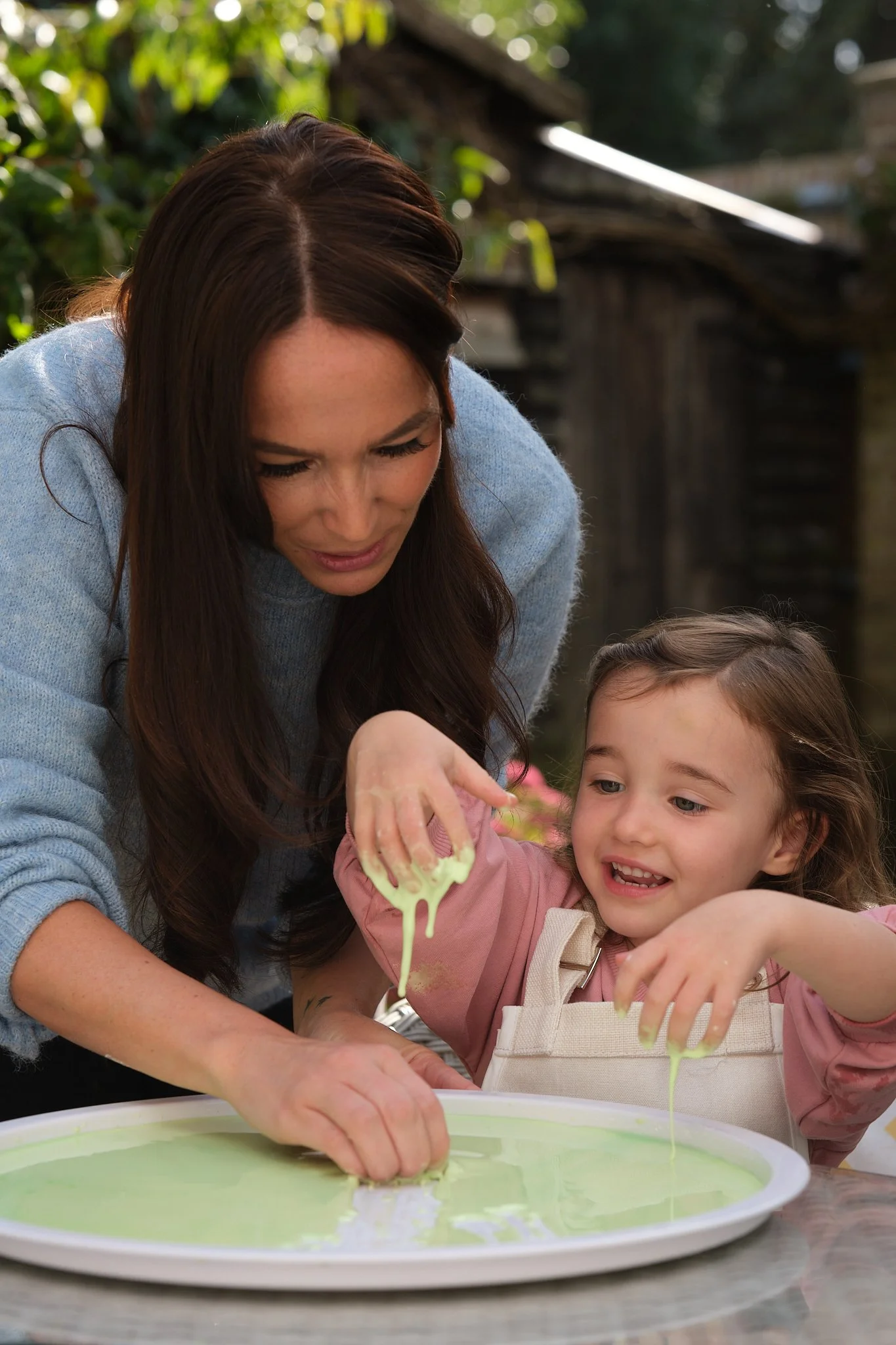Preschool Play
Between ages 2 and 4, children are developing social skills, language, problem-solving, and physical coordination. Play is the best way for them to explore the world, express themselves, and build confidence. Here are a range of fun and educational activities suitable for preschoolers.
-
How to play: Hide small toys or household objects around a room or garden and give children simple clues to find them. This encourages problem-solving and observation skills.
-
How to play: Use playdough to create shapes, animals or letters. Add tools like rolling pins and cutters to develop fine motor skills.
-
How to play: Set up bowls of water with cups, spoons and floating toys. Children enjoy pouring, scooping and experimenting with flow. Why not try adding different containers and begin using language surrounding full and empty.
-
How to play: Collect leaves, twigs, flowers and stones on a walk. Children can stick them onto paper to make natural collages while exploring textures and colours.
-
How to play: Use cushions, tunnels, boxes or chairs to create an indoor or outdoor course. Toddlers can crawl, climb, jump and balance, building strength and coordination.
-
How to play: Provide objects in different colours and ask children to group them. This develops colour recognition and early organisational skills.
-
How to play: Play instruments, dance to songs, or make up rhythms with clapping. This encourages listening skills, coordination and creativity.
-
How to play: Read a favourite story while providing puppets, soft toys or props to act out the tale. Children practise language skills and imagination. You could even give it a go at making your own puppets with wooden spoons.
-
How to play: Let children help stir, measure or decorate biscuits or cakes. Cooking teaches basic maths, following instructions and sensory exploration. You could even try exploring cutting skills with children safety knives and chopping boards - start with soft fruit and vegetables.
-
How to play: Use blocks, Lego or recycled boxes to build towers, bridges or houses. This encourages problem-solving, spatial awareness and patience.
-
How to play: Fill trays with rice, pasta, sand or beans and add cups, scoops and small toys. Children explore textures and practise fine motor skills. Set them the challenge of building different worlds for animals or toys.
-
How to play: Encourage children to pretend to be animals or act out simple scenarios. Role play develops imagination, social skills and empathy.
-
How to play: Roll out a large piece of paper/ old wallpaper. Provide brushes, crayons or chalk. Encourage free expression through colour, shape and mark making.
-
How to play: Age-appropriate jigsaw puzzles or matching games help develop problem-solving, hand-eye coordination and concentration.
-
How to play: Plant seeds in pots or dig in a garden. Children learn about nature, responsibility and cause-and-effect while enjoying outdoor activity.










